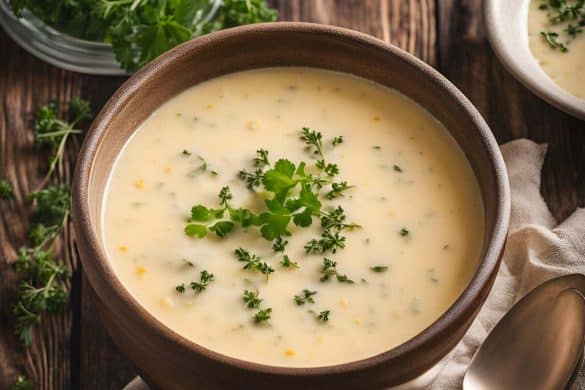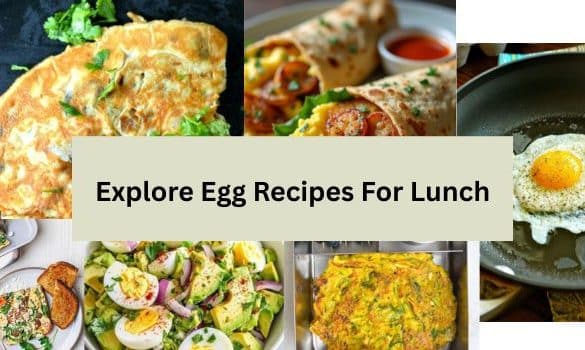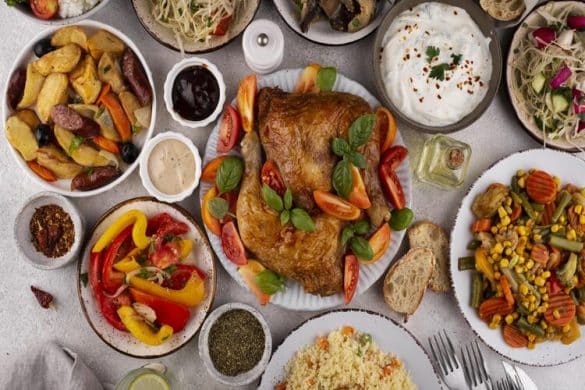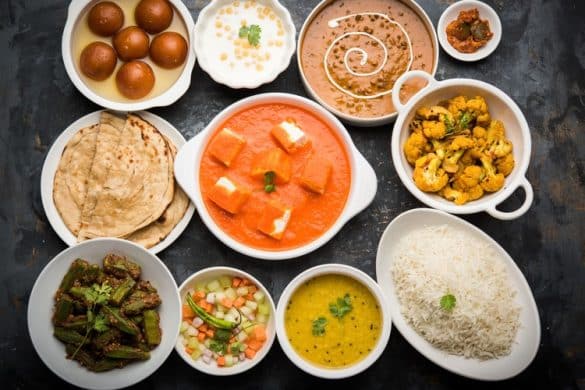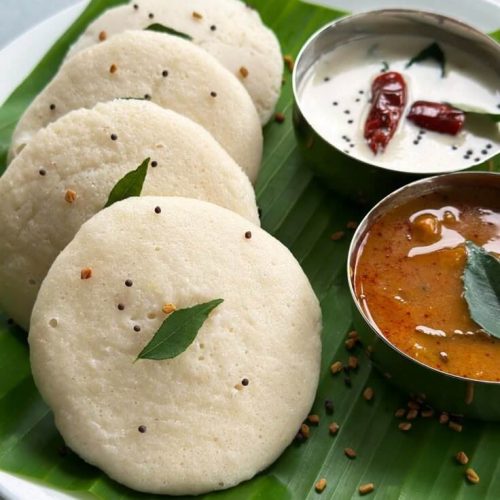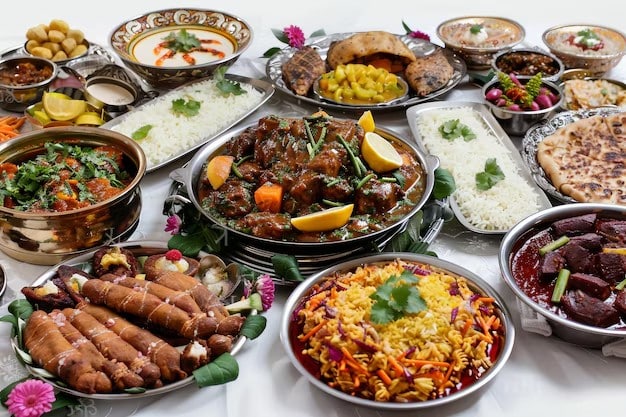While it’s essential to note that no single food can entirely prevent cancer, leveraging the power of a balanced and healthy diet rich in cancer-fighting properties and a varied diet can set up a robust defense system. These include various fruits, vegetables, protein sources, and even select beverages, enhancing the body’s ability to fend off cancerous cells.
Let’s journey through this comprehensive guide that explores foods that can help lower your risk of cancer and ones to avoid, coupled with insights into the impact of these food items on specific cancer types.
What are some fruits that help fight cancer?
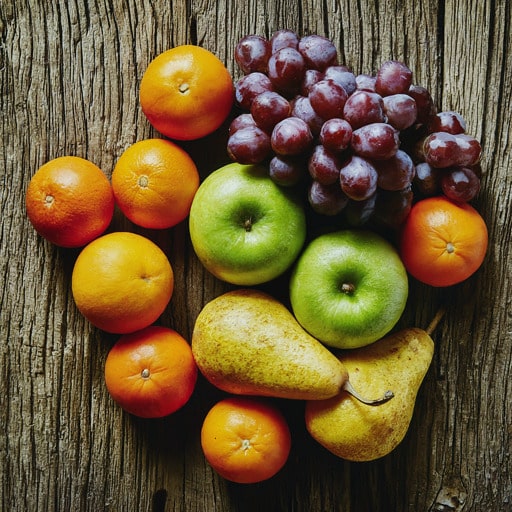
A heart shaped arrangement of fruits on a rustic wooden table including apples pears grapes and oranges
Fruits, including citrus fruits, are a powerhouse of vital nutrients – antioxidants, dietary fibre, and several plant compounds – that can help safeguard against cancer. Their rich colour spectrum is a testament to the variety of health-protective compounds they contain, known as phytochemicals. From crisp apples to juicy oranges, every fruit adds a different set of phytonutrients that work hand in hand toward inhibiting cancer cell growth and promoting overall well-being.
1. Apples
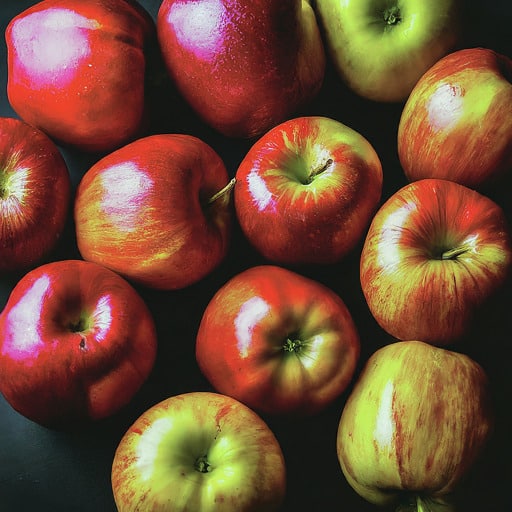
A collection of freshly picked apples
Often overlooked for their simple availability, apples pack a potent punch of antioxidant and anti-inflammatory properties. They owe this superfood status to an essential polyphenol called phloretin.
- This compound has shown promise in significantly inhibiting breast cancer cell growth without affecting healthy cells.
- It does so by inhibiting a protein called glucose transporter 2 (GLUT2), which is involved in advanced-stage cell growth in certain types of cancer.
- Furthermore, the fibre content of apples could also contribute to reducing cancer risk.
So, whether you bite into one fresh off the tree or slice it up in your salad, remember that apples have an added dose of cancer-fighting properties in every juicy bite.
2. Berries
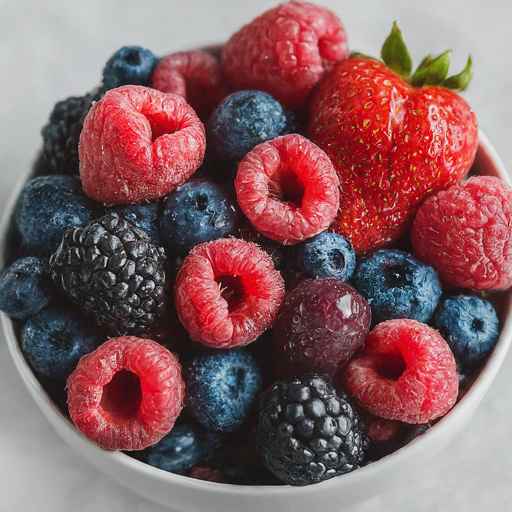
A bowl filled with a variety of fresh berries.
Small in size but mighty in nutritional power, berries are one of the best foods you can consume for cancer prevention. Their vibrant colours indicate a high concentration of anthocyanins, a type of flavonoid with potent antioxidant properties.
Research indicates that berries, particularly bilberries and lingonberries, have the potential to inhibit tumour formation and cancer growth in the digestive tract. Some studies show consumption could modulate the immune system and delay cancer development.
Including berries in your diet can benefit overall health and cancer prevention, whether through delicious smoothies, salads, or just a handful for snacking.
3. Grapes

A bowl of green grapes on a wooden table, surrounded by autumn leaves and a cosy blanket.
Grapes, especially the purple and red variants, contain a powerful antioxidant known as resveratrol. Resveratrol possesses strong antioxidant and anti-inflammatory benefits that can prevent significant damage, which could potentially trigger the cancer process in cells.
Despite the need for more research, initial studies suggest that its consumption can have protective effects against various types of cancer. In addition to resveratrol, grapes also contain several other compounds contributing to their cancer-fighting properties:
| Antioxidant | Function |
| Flavonols | Potent antioxidants |
| Phenolic acids | Protect against oxidative stress |
| Proanthocyanidins | Potential anticancer traits |
Thus, grapes offer a sprinkle of these potent properties, whether you enjoy them fresh or as a part of your beverage.
4. Oranges
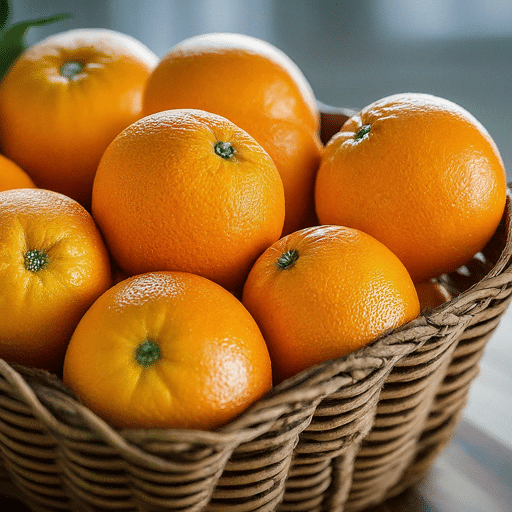
A basket overflowing with fresh juicy oranges
Oranges are not just a refreshing source of hydration; they are also rich in multiple nutrients known for cancer prevention. They pack an impressive Vitamin C, dietary fibre, and several plant compounds, notably flavonoids, that present immense health benefits.
While it’s well recognised that Vitamin C plays a crucial role in boosting immune function, the dietary fibre in oranges aids in maintaining a healthy digestive system, lowering the risk of digestive tract cancers. From lending a zesty intensity to salads or being enjoyed fresh, oranges serve as a great addition to a cancer-fighting diet.
5. Pears
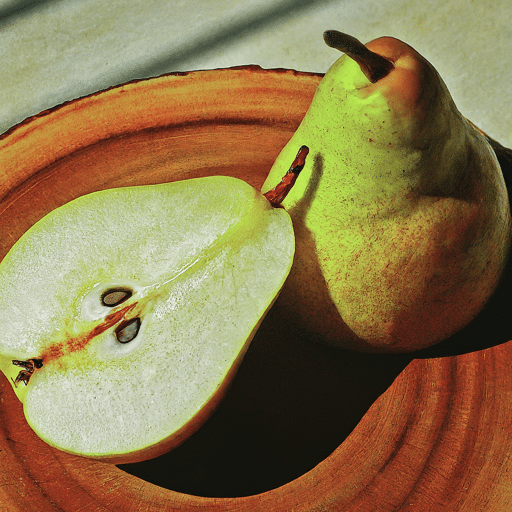
A whole pear and a half of a pear on a wooden plate
Sweet, juicy pears offer various health benefits, including cancer prevention. They are packed with nutritional fibre, which not only aids digestive health but also helps reduce the risk of several types of cancer.
High-fibre foods are often more filling, thereby assisting in managing weight—an essential aspect of cancer prevention. Pears offer significant protective benefits as a healthy addition to your fruit platter or a delicious baking ingredient.
Which vegetables are known to help combat cancer?
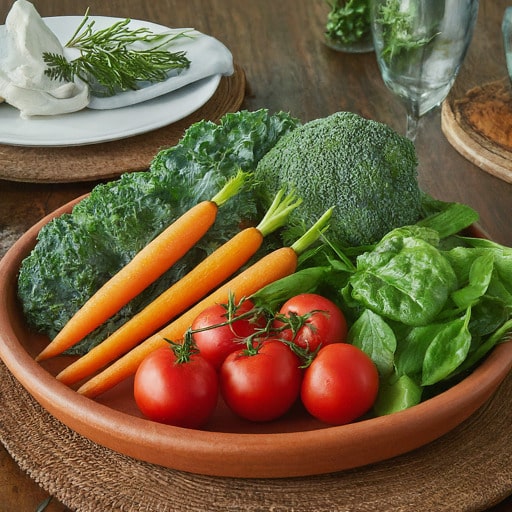
A rustic terracotta tray filled with fresh and vibrant vegetables, including carrots, tomatoes, broccoli, spinach, and kale.
Vegetables are the central pillars of a healthful diet. Loaded with various essential nutrients, including valuable antioxidants, vitamins, minerals, and dietary fibre, different vegetables can offer different cancer-fighting properties.
From cruciferous vegetables like broccoli to humble carrots and leafy greens, each brings unique beneficial compounds to support your body’s defence against cancer. Let’s delve into the details.
1. Cruciferous vegetables
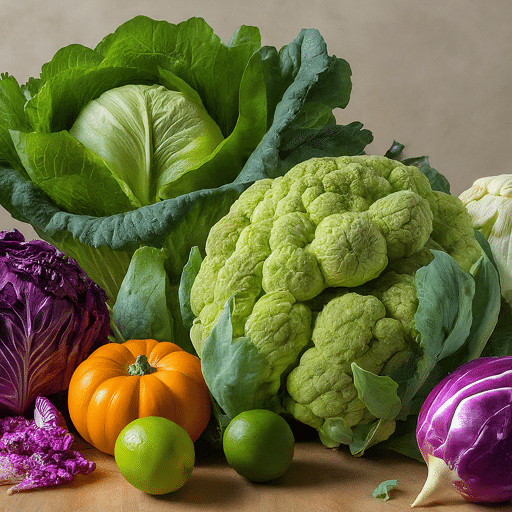
Colourful cruciferous vegetables, including cabbage, cauliflower, and pumpkins, displayed on a wooden table.
Cruciferous vegetables, such as broccoli, cauliflower, Brussels sprouts, cabbage, and kale, have notable benefits for reducing cancer risk.
- One notable compound found in these vegetables is sulforaphane, a plant compound that has been shown to significantly inhibit cancer cell growth, particularly in colon cancer cells.
- Further studies indicate that when combined with genistein – a compound present in soybeans –sulforaphane can notably hinder breast cancer tumour development and size.
Incorporating three to five servings per week of these vegetables into your diet can significantly affect your overall cancer risk.
2. Carrots
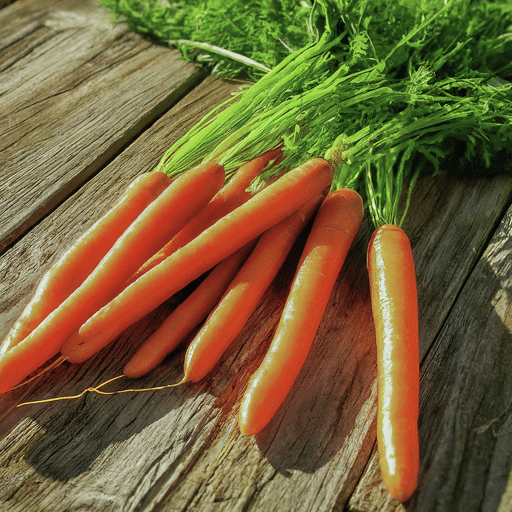
A bunch of fresh carrots with green tops, lying on a wooden table.
Carrots, famous for their vibrant colour and high beta-carotene content, offer promising results in cancer prevention. Recent studies have found an association between a higher intake of raw carrots and a reduced risk of colorectal, lung, and certain types of leukaemia.
The presence of minerals, vitamins, and fibre in carrots adds another layer of protection against lung cancer cancerous cell development. Consuming carrots in their raw form allows the body to better absorb these critical nutrients, amplifying their preventive properties. Whether added to a salad or enjoyed as a healthy snack, carrots serve as valuable allies in the fight against cancer.
3. Leafy greens
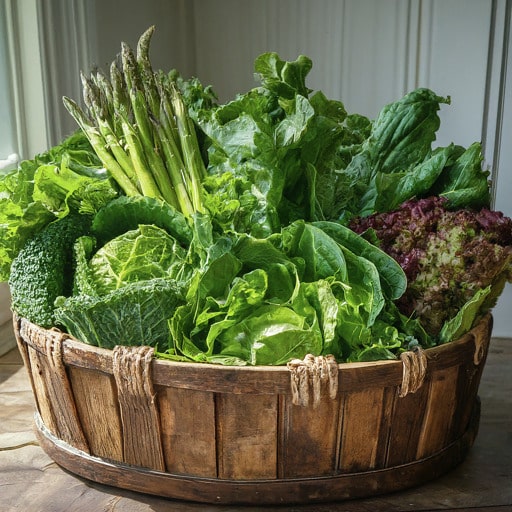
An overflowing basket of fresh leafy green vegetables
Leafy green vegetables are nothing short of nutritional goldmines. Packed with fibre, Vitamin K, folate and carotenoids, they offer many health benefits, including potential cancer prevention.
The protective antioxidants in leafy green vegetables like spinach, mustard greens, romaine lettuce, and kale can help safeguard against mouth, larynx, pancreas, lung, skin, and stomach cancers. Some pivotal antioxidants in these vegetables include:
| Antioxidant | Function |
| Lutein | Protects against oxidative stress |
| Beta-Cryptoxanthin | It may inhibit cancer cell growth |
| Zeaxanthin | It may have anti-cancer properties |
Incorporating a generous portion of leafy greens in your regular diet can help offset your cancer risk significantly.
4. Spinach
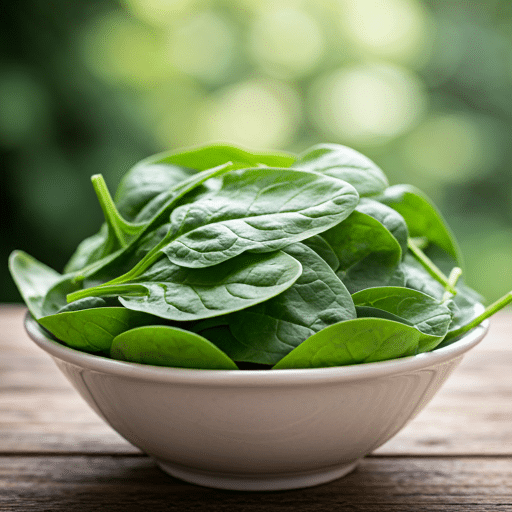
A bowl of fresh raw spinach leaves
Spinach is often dubbed a “superfood” because it contains vitamins, minerals, and potent plant compounds.
Spinach is high in beta-carotene and lutein, two types of antioxidants known to decrease the risks of cancer, mainly breast, prostate, and colon. Its high folate and fibre content additionally boosts its cancer-fighting potential.
Whether you enjoy it steamed, in smoothies, or as part of your salad – including spinach in your diet can lend a distinctive protective edge against cancer.
5. Tomatoes
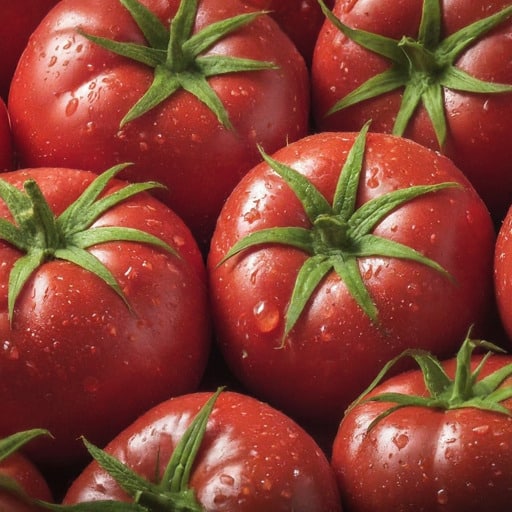
A close up shot of a cluster of plump ripe tomatoes with green stems and glistening water droplets
Tomatoes, a staple of many diets worldwide, are a rich source of vitamins A and C and folic acid. They also contain lycopene, a powerful antioxidant associated with a reduced risk of many types of cancer, including prostate cancer.
Research suggests that lycopene prevents cancer by protecting cells from damage. Also, because it’s found in the red pigment of tomatoes, it’s more readily available to the body when the tomatoes are cooked or processed, making canned tomatoes an equally healthy option. From hearty sauces to fresh salads, adding tomatoes and a higher intake of olive oil to your diet can bring you closer to cancer-preventive nutrition.
What are some protein sources that can help in the fight against cancer?
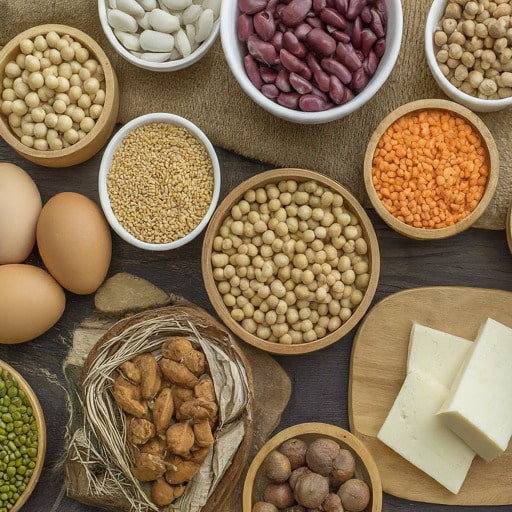
A variety of protein rich foods including eggs tofu beans lentils nuts and whole grains arranged on a wooden table
Protein is essential for the proper functioning of our body, and when it comes from suitable sources, it also has anticancer properties. Foods like fish, legumes, and nuts provide high-quality protein and include various beneficial compounds like omega-3 fatty acids and dietary fibres.
These protein-rich foods can enhance your defence against cancer while promoting overall health.
1. Fatty fish

A salmon swimming upstream in a river with its tail propelling it against the current
Fatty fish, such as salmon, mackerel, and anchovies, are considered top-tier sources of vital nutrients like B vitamins, potassium, and omega-3 fatty acids.
- Studies have revealed that omega-3 fatty acids from fish protect against breast cancer in the Asian population.
- Additionally, fish consumption has been associated with a lower risk of developing colorectal cancer.
While further research is required to elucidate their full potential, adding fatty fish to your meals can reduce cancer risks.
2. Legumes
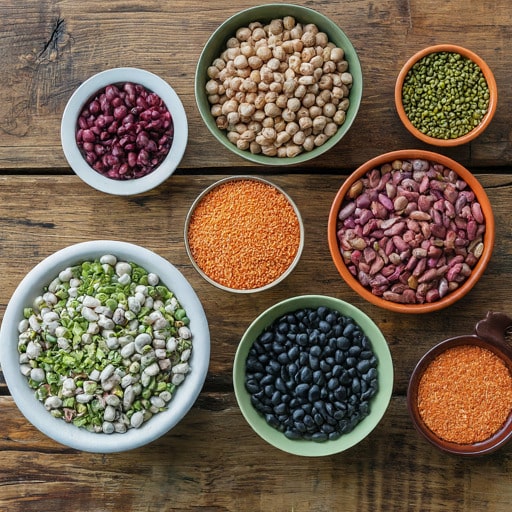
A variety of dried legumes in bowls, including chickpeas, lentils, black beans, mung beans, and kidney beans.
Legumes encompass a variety of beans, peas, and lentils. They are packed with a hefty dose of fibre, which can play a significant role in lowering the risk of some types of cancer.
Research indicates a connection between a higher intake of beans and a high intake of bean fibre and a reduced risk of breast cancer. People with diets rich in bean fibre were reportedly 20% less likely to develop breast cancer than those who did not meet their daily fibre intake. Thus, adding legumes to your diet is a delicious and protein-rich way to step up your cancer-preventing regimen.
3. Nuts
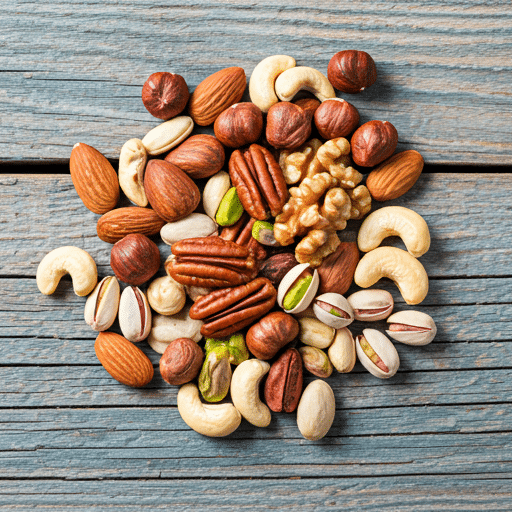
A variety of nuts, including almonds, walnuts, cashews, pecans, hazelnuts, and pistachios, scattered on a wooden table
Nuts are nutritional powerhouses boasting immense health benefits, the latest being their role in cancer prevention. Specifically, walnuts contain pedunculagin, which our body metabolises into urolithins—compounds that bind to oestrogen receptors and may play a key role in preventing breast cancer.
Other nuts bring their unique nutritional composition:
| Nut | Nutrient |
| Almonds | High in Vitamin E |
| Walnuts | Rich in alpha-linolenic acid, a type of Omega-3 |
| Pistachios | Contain gamma-tocopherol, a type of Vitamin E |
Regularly including nuts in your diet can reduce cancer risk, among other health benefits.
4. Soy products
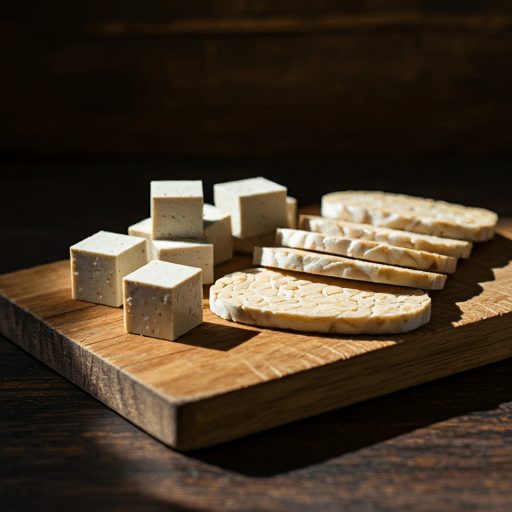
Tofu cubes and tempeh slices on a rustic wooden cutting board.
Soy products, such as tofu and tempeh, are hailed for their potential in cancer prevention animal studies and another research suggests that the isoflavones in soy could inhibit the growth of various cancer types, including breast and prostate cancer. These plant-based proteins might also aid in reducing the risk of cancer progression. Including soy in your diet can be a tasty way to boost your health and incorporate cancer-fighting properties into your meals.
5. Eggs
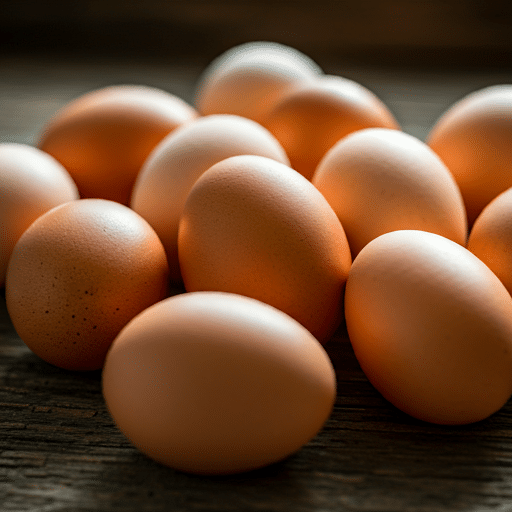
Fresh eggs on a rustic wooden table, with natural light illuminating their shells.
Eggs are a powerhouse of essential nutrients like Vitamins D and B, selenium, and good-quality protein. Vitamin D has been recognised for its potential to inhibit cancer cell growth and decrease the risk of certain types of cancer, including breast and colorectal cancer. Remember, it’s always best to consume foods like eggs as part of a balanced diet filled with other protective foods for maximum benefits. Egg caldinho– Check out this link to make the dish.
6. Whole grains
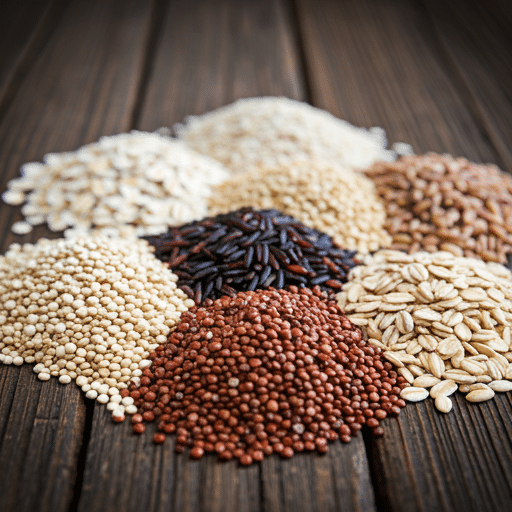
Collection of whole grains – brown rice, quinoa, wheat berries, oats, and barley
Whole grains are incredibly nutritious. Besides being a key source of dietary fibre, they also supply critical nutrients like vitamins, minerals, and plant compounds beneficial to our health.
Consuming whole grains has been associated with a 6-12% lower cancer risk. Some site-specific cancers that whole grains may reduce risk include colon, oesophagal, gastric, and pancreatic. Thus, switching to whole grains like brown rice, oatmeal, or whole wheat bread can be a simple yet effective step towards cancer prevention.
7. Low-fat cheese
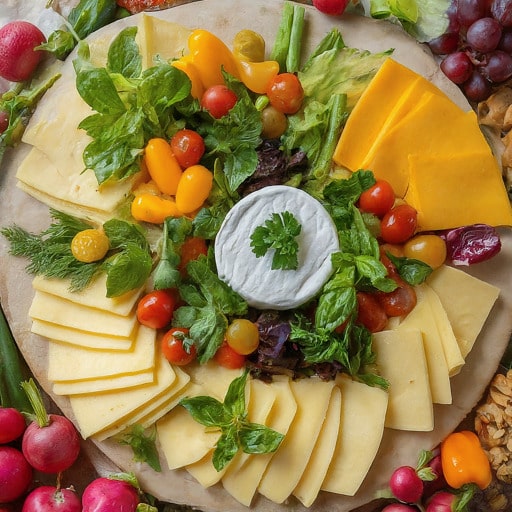
A colourful and inviting cheese platter featuring a variety of cheeses, vegetables, and herbs.
Low-fat cheese offers a host of nutrients, including calcium, protein, and vitamins. Consuming calcium and vitamin D from dairy products has been associated with a reduced risk of colorectal cancer. It’s important to remember that while cheese is nutritious, it can be high in calories and saturated fat. Always consume lower-fat options in moderation, complementing them with other wholesome foods for a balanced diet.
To sum it up
The call for cancer prevention starts in the kitchen. How we fuel our bodies translates directly into how well our bodies function, including our body’s natural ability to ward off diseases like cancer- according to a wellness dietician. You can significantly decrease your risk of developing cancer by intuitively focusing on maintaining a diverse plant-based, nutrient-dense diet rich in cancer-fighting foods, such as fruits, vegetables, whole grains, and lean proteins.
Avoiding processed meats, limiting alcohol consumption, and reducing refined grains can also considerably lower your cancer risk. It’s important to remember that no individual food or food group alone has the power to combat cancer completely – it’s the synergy of numerous beneficial compounds found across a variety of food types that does the trick.
By choosing a nutritious diet over time, managing your weight, staying physically active, and maintaining other healthy lifestyle practices, you can shift the odds in favour of cancer prevention.
Frequently Asked Questions
What is the number one cancer-fighting food?
There isn’t any one food that can singularly fight cancer. However, consistent consumption of a variety of cancer-fighting foods like berries, cruciferous vegetables, whole grains, fatty fish, and nuts, as part of an overall balanced diet, is key to reducing the risk of cancer.
How do you starve cancer cells naturally?
Research suggests that lowering glucose levels through a diet low in carbohydrates and high in fat can restrict the growth of cancer cells. This approach should be followed under professional guidance, so it’s always advised to consult with a healthcare provider before any significant dietary changes.
How do we stop cancer cells from growing?
A balanced diet rich in antioxidants, regular exercise, and avoiding harmful substances like cigarettes and excessive alcohol can help prevent cancer. Consult healthcare professionals for personalised advice. By understanding the impact of our food choices on our health, we can make informed decisions to reduce cancer risk and improve overall well-being.
How can I boost my immune system to fight cancer?
Eating a balanced diet rich in fruits, vegetables, lean protein, and whole grains can provide your body with various nutrients that support a healthy immune system, enhancing its ability to combat diseases, including cancer. Regular physical activity and maintaining a healthy weight further strengthen your immune health.
What foods can increase your cancer risk?
Foods that can increase your cancer risk include processed meats, red meat, excessive alcohol consumption, sugary drinks, highly processed foods, and foods preserved with nitrates or nitrites. While these foods may not be the sole cause of cancer, consuming them in excess can increase your risk. A balanced diet with plenty of fruits, vegetables, and whole grains is essential for overall health and cancer prevention.

